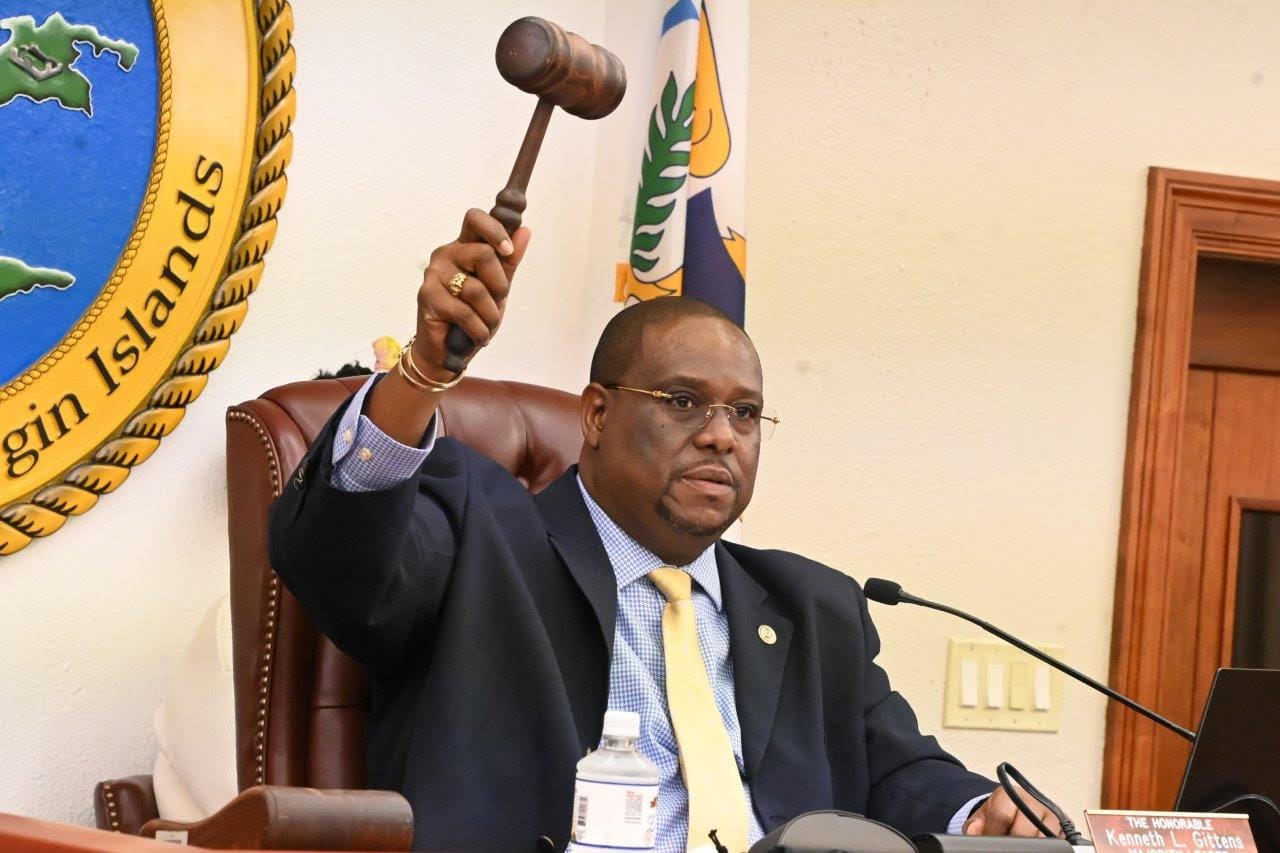
A recent Senate hearing by the Committee on Homeland Security, Justice and Public Safety explored a law enforcement sector receiving little attention: peace officers. Twenty-two executive branch and semi-autonomous agencies have trained and certified law enforcement officers on their payrolls. At that hearing, lawmakers asked how the government’s network of peace officers works and where it falls short.
But of the 22 agencies named by the head of the Peace Officer’s Training Council, only four appeared before the 35th Legislature. The council — also known by the acronym POST — was established to oversee training and certification for law enforcement officers who serve outside of the Virgin Islands Police Department. That includes corrections officers, Superior Court marshals, members of the security teams for the governor, lieutenant governor and other dignitaries; fire marshals, marine and airport security officers, and those for the Internal Revenue Bureau; hospital security officers and those keeping campuses safe at the University of the Virgin Islands, investigators for the Inspector General’s Office and the Justice Department.
Post Director Gleston McIntosh told the committee at their Feb. 13 hearing that his agency had trained and certified 148 peace officers since 2019 and provided follow-up training for another 640 peace officers who were trained and certified by VIPD in previous years.
Assistant Health Commissioner Reuben Molloy, Licensing and Consumer Affairs Assistant Commissioner Horace Graham, Planning and Natural Resources Chief Environmental Enforcement Officer Howard Forbes and Taxi Commission Director Vernice Gumbs shared information about their enforcement units’ strengths and weaknesses.
Almost all of the officials said they lacked funding and manpower. Forbes said DPNR has 11 environmental officers doing duty on St. Thomas and St. Croix. The agency has one vacancy for St. John. “Ideally, we would have 10 officers in each district,” Forbes said.
Molloy at Health said most of his officers’ time is taken up inspecting new businesses and conducting random compliance checks on thousands of existing businesses. He also told lawmakers about a new neighborhood nuisance unit added to help with environmental problems that show up in residential areas, including dead animals.
Graham at Licensing said officers at his agency have thousands of businesses to check for compliance. ”DLCA enforcement emphasizes persuading business operators to follow the law,” but also cited a recent instance where officers took stronger action.
“Most recently with the assistance of the Virgin Islands Police Department DLCA effected the arrest of the owner of a nightclub who had been issued a cease and desist order by the department,” he said. The assistant commissioner added that Licensing’s enforcement unit is so small that illness, scheduled leave and absences can curtail regular oversight and compliance duties.
Taxi Commission Director Gumbs said her agency has two enforcement officers on St. Thomas, none on St. Croix and none on St. John. “Within the next couple of months, the commission intends to recruit two enforcement officers for St. Croix,” she said.
Gumbs also had harsh words for Licencing and Consumer Affairs, pointing to that agency’s licensing of vehicles for hire like limousines. Unregulated vehicles allowed to transport passengers infringe on the taxi operators, Gumbs said, adding that DLCA has left enforcement of that sector alone.
Committee Chairman Kenneth Gittens and other committee members questioned the testifiers about their law enforcement practices.
“Does your agency have law enforcement vehicles — marked or unmarked — fully equipped with emergency lighting (sic) in your respective divisions?” the chairman asked.
All four agencies said yes. Officials from Health and Licensing added that their officers had also been on the scene with VIPD for emergency response.
All of the testifiers said they had also sent their enforcement units to help police provide security for large public events like Carnival and St. Croix Agrifest.
But when Gittens asked how many traffic tickets each agency had issued to errant motorists, all four agencies said no.
Senate President Novelle Francis Jr. sat in on the hearing, posing questions about any impediments keeping agencies from assisting VIPD with traffic enforcement and how well they kept up with active shooter training.
“When was your last active shooter drill and when is the next one scheduled for. I want to make sure that it’s made a priority,” Francis said. “We are really in this together. I see where we could make some serious inroads supporting law enforcement agencies.”
Gittens challenged assertions made by DPNR that they could only follow the mandates of the U.S. Coast Guard, their enforcement unit’s main funding source. The committee chairman pointed out that peace officers are trained to perform the same functions as VIPD and must be prepared to do so when called upon.
It was a scenario that became a reality for the environmental enforcement unit at Health when they were incorporated by VIPD during the COVID pandemic between 2020-2022, Gittens said.


